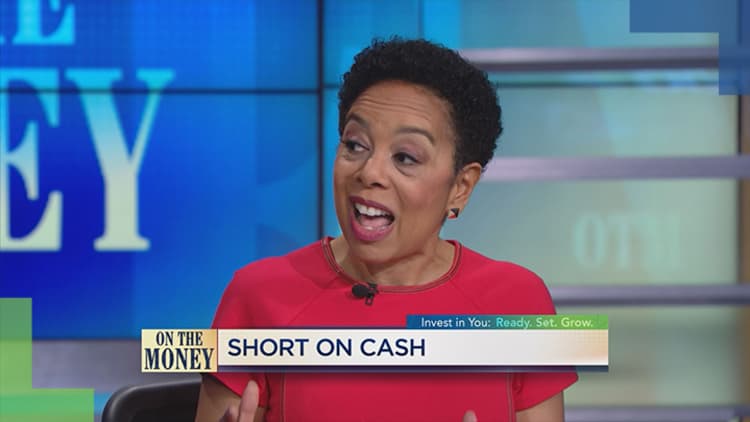Think you're the only one who's living on a financial knife's edge? You are not alone. Recent data show most American workers live paycheck to paycheck.
The statistics seem accurate to Joseph Driscoll, a 39-year-old San Diego resident on active duty with the Coast Guard. His co-workers began panicking before the first paycheck was missed during the December-January partial government shutdown.
Driscoll is also a financial coach – yet his own finances were once far from healthy. He and his wife lived paycheck to paycheck until the day they had had enough. "We had campers, jet skis and $52,000 in debt — and this was after cleaning up debt previously," he said.
More from Invest in You:
Stashing cash finally starts to pay off
Why HSAs are ideal millennial savings vehicles
Smart moves for long-term financial security
They learned to budget and cleared up the debt, and within two years they were back on track.
So take heart. Others improved their finances and you can, too. And take note: Any combination of strategies can help, from Frugal February to picking up a side hustle.
If you have credit card debt, continue making payments. But you may need to drop payments down to the minimum. Consider transferring the balance to a zero-interest credit card. Not accumulating more interest could be a substantial win.
Save first
Track your spending. "People don't realize they spend a few hundred [dollars] a month eating out," said Lance Cothern, founder of The Money Manifesto. "Or on snacks at the gas station."

Through frugal living — living like a student after graduating — Cothern, 32, and his wife paid off $80,000 in student loans in three years.
Make saving a priority, not an afterthought, he said. That way, it's no longer available for unplanned spending.
Low-cost alternatives
Becky Pfaffenbach Nova, 35, says it took her a long time to learn to manage money.
New York City is expensive, and Nova, now a medical operations specialist, was constantly squeezed. Sometimes she asked her fiance to pay her subway fare, pretending she didn't have her card handy. But the reality was, she didn't have $2.75.
The wakeup call came when her fiance confronted her. Nova boosted her income with a higher-paying position, and set spending and savings limits.
I tried to make a game out of seeing how long I could go without spending money.Becky Pfaffenbach Novamedical operations specialist
Goals make it easier to stick to limits. Investing in her business meant Nova didn't mind forgoing restaurants or walking instead of using Uber. "I tried to make a game out of seeing how long I could go without spending money," she said.
When friends suggest meeting for drinks, Nova counters with lower-cost or free alternatives, such as going to the park.
Nova earns extra cash checking people in at events or doing in-person market research, which pays far more than online surveys. "A little extra money here and there is helpful," she said.
Day planner
It's crunch time for Suzanne Truong Hoyer, 38, an IT analyst who lives in Unionville, Connecticut. Her husband is on unpaid leave, and the couple, with two kids, lives on one paycheck.
"We just bought a house and haven't yet sold the previous house," Hoyer said.
They are making their own repairs to the house on the market. They sold items before moving to recoup money for unwanted things. On a recent snowy day, Hoyer and her husband pulled the kids around on a sled and built a snowman.
Hoyer recommends going through your day to see where you can cut back. "If you are used to going out for drinks, scale back," she said. She cooks 90 percent of the time, and finds ways to get the most value out of, say, roasting a chicken to create two or three meals.
Disclosure: NBCUniversal and Comcast Ventures are investors in Acorns.





